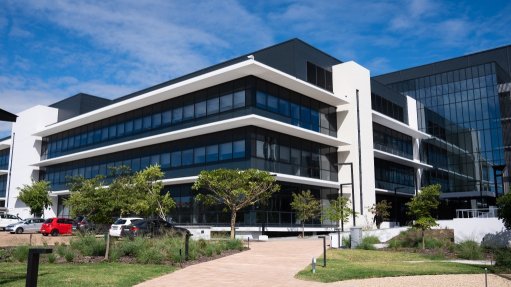
Stellenbosch University's Biomedical Research Institute
Stellenbosch University (SU) formally launched its new Biomedical Research Institute (BMRI), on its Tygerberg campus (next to Tygerberg Hospital) in Cape Town, on Friday. Regarding its facilities and research capabilities the new complex is one of the best in the world, and unequalled in Africa and even, SU believes, in the entire southern hemisphere.
“The realisation of the BMRI resonates with SU’s vision of being Africa’s leading research-intensive university with the objective of being globally recognised for our excellence in innovation to advance knowledge in service of society,” affirmed SU Rector and Vice-Chancellor Professor Wim de Villiers.
The creation of the BMRI required an investment of R1.2-billion. Construction started in 2018 and was completed this year, despite the challenges posed by the Covid-19 pandemic. The complex was designed to be ‘future-proof’, and is able to accommodate future developments by being modular and sustainable.
“Scientists at the BMRI conduct research that translates into discoveries that help improve the diagnosis, prevention and treatment of illnesses affecting the people of South Africa and the rest of Africa,” highlighted SU Medicine and Health Sciences Faculty Vice Dean: Research and Internationalisation Professor Nico Gey van Pittius.
The institute has more than 500 researchers and students, working in numerous laboratories, fitted with the latest equipment and systems. Facilities in the complex include a fully-automated biorepository (where medical samples are preserved, in very low temperature storage) and the largest biosafety level three (BSL-3) laboratory in Africa. (The highest biosafety level is BSL-4.)
“The research conducted in the BMRI builds on SU’s commitment to impactful research which takes into account the natural environment, health, human security as well as systems and technologies for the future,” pointed out SU Deputy Vice-Chancellor: Research, Innovation and Postgraduate Studies Professor Sibusiso Moyo. “At the heart of our scientific endeavours, is the challenge to be locally relevant and globally competitive.”